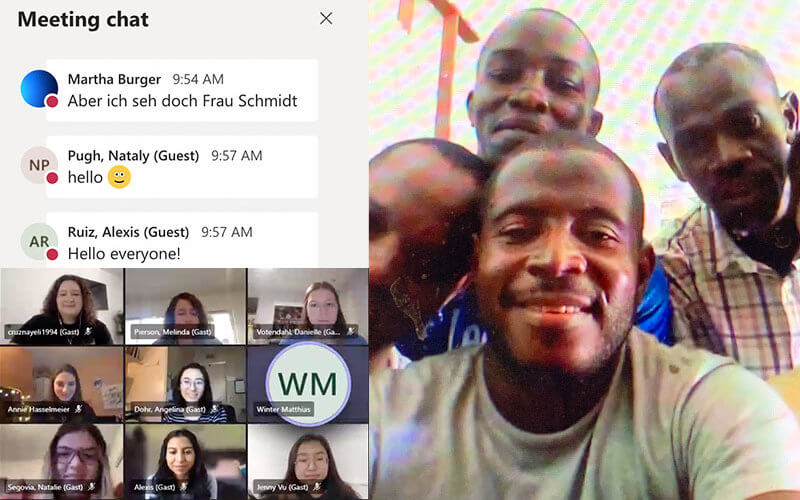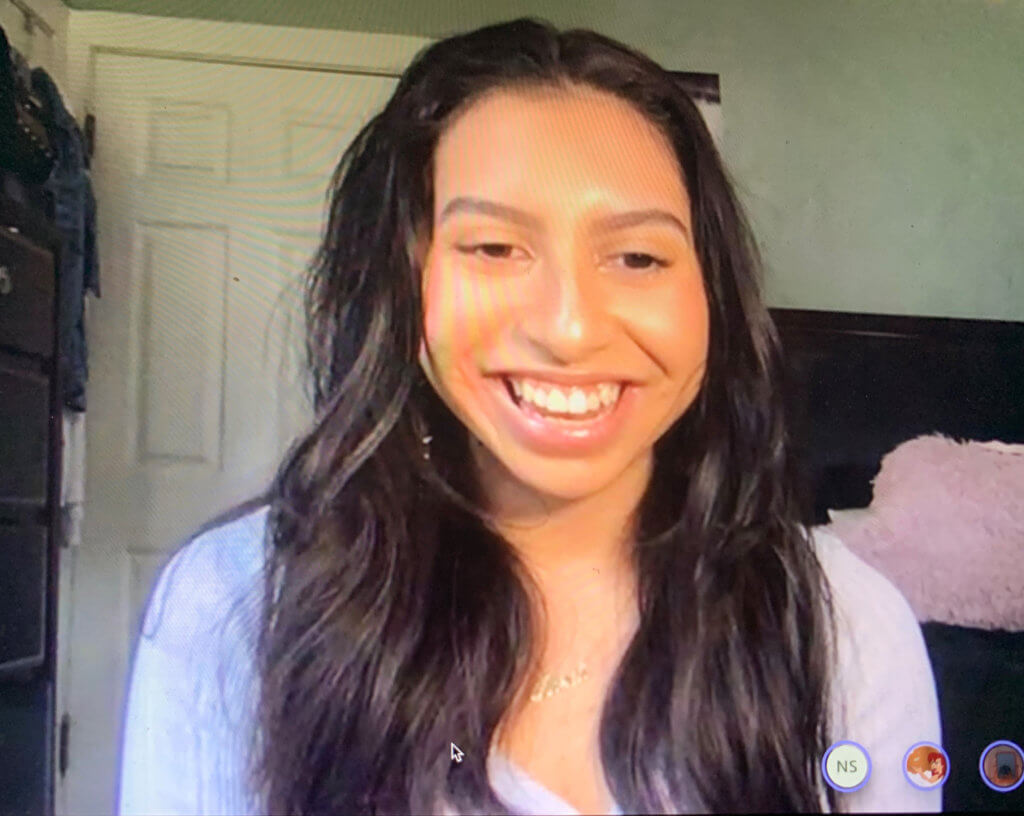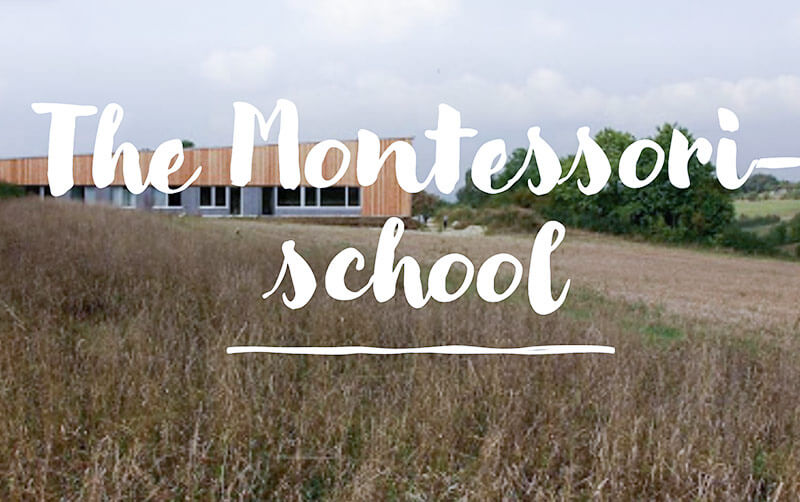
Motivated by a love for working with children, Alexis Ruiz dreams of becoming a pediatric oncologist.
Ruiz, who is a junior at Cal State Fullerton, first considered pursuing a major like biology or chemistry. Then, she decided to major in child and adolescent studies so she could better understand pediatric patients.

“Too many times, people don’t study children enough as a whole when they’re working with them,” Ruiz said. “If I can help out by being knowledgeable of children, their feelings and how their minds work, that can make life easier. I volunteer at a children’s hospital, and I often see this coldness around the doctors. There isn’t always that great of a connection with children as there is with nurses and child life specialists.”
This semester, Ruiz signed up for a virtual study abroad opportunity to meet K-12 students in Germany. It was offered through the special education class, “Language and Culture in Special Populations.” Ruiz was one of the first students to secure her spot.
“Because of COVID-19, I haven’t interacted with children for so long,” Ruiz said. “Other than the children’s hospital, I’m just itching to talk to a child because you learn so much, especially with diverse populations where the students are not completely fluent in English. I’ve never spoken to a child from across the world that’s an adolescent. It was a new experience and I loved every second of it.”

Students in the class are working with adolescent students from Eichstatt Montessori School in Eichstaett, Germany and Lekol Lesqwa School at the Maison des Enfants de Dieu Orphanage in Port-au-Prince, Haiti. The opportunity allows students to complete fieldwork observation hours during the COVID-19 pandemic.
The class is a prerequisite for Cal State Fullerton’s Education Specialist credential program, but students majoring in child and adolescent studies and liberal studies also take the course. In previous years, students had the option to travel to Germany during winter session or Haiti during summer session to complete fieldwork observation hours.
Melinda Pierson, chair and professor of special education at Cal State Fullerton, said the department moved the study abroad opportunity to a virtual format to continue its valuable lessons for students.
“These two countries highlight inclusive schools which do not always exist here,” Pierson said. “This program helps them to broaden their minds about how to fully include students with disabilities in all educational environments.”
In March, Pierson’s students were paired with seventh- and 10th-grade students from Germany. More students will meet with fourth- and ninth-graders from Haiti through April and May. Their discussion topics include hobbies, families, schools and cultural activities.
The shift to virtual meetings made the opportunity accessible for students like Ruiz, who said the logistics of planning an in-person trip to Germany would have made it more difficult to participate.
“A couple of different aspects might have hindered me from doing that,” Ruiz said. “I don’t have a passport. Financial costs, not just for me but for others. If the class is returning to in-person study abroad in January, I would get priority to sign up and would definitely love to go if I have the means to do it. I would consider saving up for that.”
Ruiz said the virtual experience was still helpful as she prepares for a future career in medicine.
“There’s not just neurotypical children in a ward,” Ruiz said. “Cancer is something that does not discriminate.”